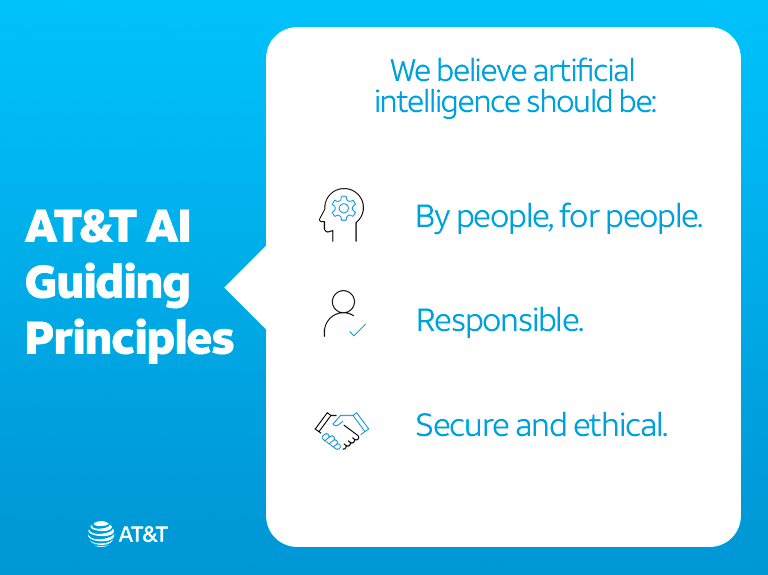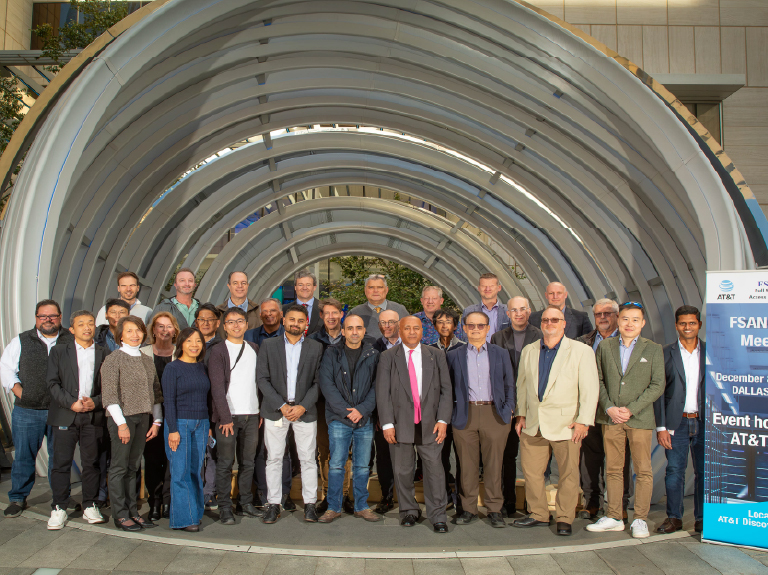AT&T’s New GenAI Tool Builds on a Company-wide AI Transformation
AT&T definitely isn’t new to AI. In fact, we’re very proficient at using AI to drive significant and meaningful value to the business.
AT&T was there at the very beginning. In 1955, our researchers helped organize and were key contributors at the conference where the term “artificial intelligence” was born.
Over the last few years, we’ve been applying AI across AT&T to provide improved service and value to our customers, increase operational efficiencies, and drive new revenue opportunities for the company. AI is imbedded across AT&T. Customer service is one major area that’s benefitted. Behind the scenes, AI optimizes the daily routes our field technicians take in their trucks to serve more customers and handle more repairs with less fuel consumption. And AI helps us recognize and block fraud in the network in near real time to greatly reduce the number of spam calls our customers receive.
But we haven’t seen anything yet.
Over the last several months, what’s known as “Generative AI” has become a sensation and rightly so. We’re super excited about it as well! In fact, I think it’s a transformational technology. Generative AI will do for businesses what the introduction of the PC and the internet did decades ago!
What does “generative” mean in the context of AI? It means that this type of AI identifies patterns and structures throughout massive amounts of data it’s given. It then uses this understanding to generate responses to user prompts. The flood of AI-generated images, videos, and texts we’ve all seen over the last few months represent an entirely new capability.
We’re so convinced of what this new generation of AI can do that we’re taking a step that few companies have so far. We’re deploying a generative AI tool for our employees over the next several weeks so they can be part of the first generation of true corporate users of this new capability. We think this technology will make them more effective, more efficient, and more creative at their jobs.
We call it Ask AT&T.
The first iteration uses OpenAI’s chatGPT functionality. It’s designed to be interoperable with other generative tools that are being created.
We’ve worked with Microsoft to make Ask AT&T secure and safe for our employees and our corporate data. It runs in an AT&T-dedicated Azure tenant that’s been pressure tested for leakage. AT&T employees can bring company data and information into Ask AT&T without worrying about that material leaking into the public domain.
Ask AT&T has a lot of “special sauce” that incorporates AT&T knowledge and processes that focus the system on responsibly delivering accurate results.
How are we using Ask AT&T? Out of the box use cases are helping our coders and software developers across the company become more productive. It’s also helping to translate customer and employee documentation from English to other languages as well as to simplify that documentation and make it easier to use.
Other early use cases we’re exploring:
- using AI to help optimize our network;
- upgrading legacy software code and environments;
- making our care representatives even more effective at supporting our customers;
- giving our employees quick and simple answers to certain HR questions;
- and fundamentally changing the way we work with the ability to reduce employee meeting time by providing automated summaries and action items (now you only have to attend the meetings that truly require your input).
We’re training Ask AT&T in a deliberate and measured way, so we can ensure that the system returns useful, accurate and, maybe most importantly, responsible responses.
That measured, calculated approach is crucial.
Generative AI tools are great and getting better quickly, but they’re not magic or infallible. Ask AT&T users are responsible for checking that the results are accurate and appropriate.
We also have to be on the watchout for external misuse of Generative AI. We know that hackers and fraudsters will try to use the functionality with bad intentions, so we have AI and Generative AI counter- measures that are central to our cybersecurity initiatives, helping us identify threats – including AI-created attacks – before they impact our company or our customers.
The focus on responsible AI is entirely appropriate. Our AI Policy and AI Operating Guidelines ground our employees in both our overall AI strategy and the concrete do’s-and-don’t’s for creating, deploying and executing AI at AT&T.
More broadly, the conversation around responsible AI development and deployment and the role of government regulation is something we’re watching closely. The companies and startups creating the largest publicly available foundational Generative AI models seem to be taking those conversations seriously, which is encouraging.
We are profoundly optimistic about the present and future of AI. It’s a transformational technology. We expect it to help businesses serve their customers better, enable new products and services that weren’t previously possible, and make our employees more effective and innovative.
We’re proud of both our heritage in AI and the great things yet to come.
HTML Editor Component
*Contents may not have visible height
Read more Technology & Innovation news




